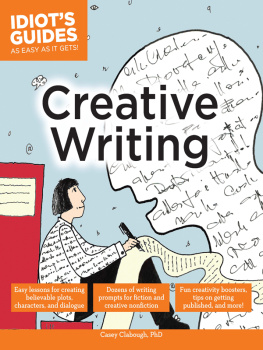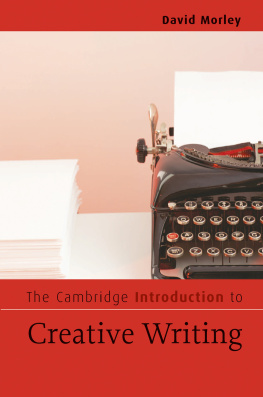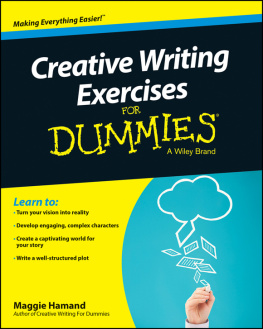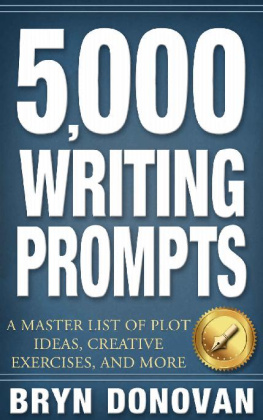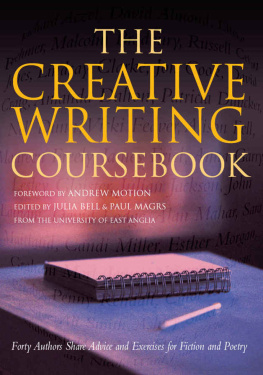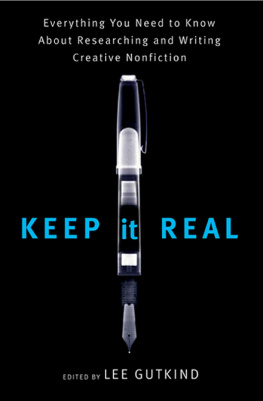Contents
Guide
No one likes a know-it-all. Most of us realize theres no such thinghow could there be? The world is far too complicated for someone to understand everything there is to know. So when you come across a know-it-all, you smile to yourself as they ramble on because you know better.
You understand that the quest for knowledge is a never-ending one, and youre okay with that. You have no desire to know everything, just the next thing. You know what you dont know, youre confident enough to admit it, and youre motivated to do something about it.
At Idiots Guides, we, too, know what we dont know, and we make it our business to find out. We find really smart people who are experts in their fields and then we roll up our sleeves and get to work, asking lots of questions and thinking long and hard about how best to pass along their knowledge to you in the easiest, most-accessible way possible.
After all, thats our promiseto make whatever you want to learn As Easy as It Gets. That means giving you a well-organized design that seamlessly and effortlessly guides you from page to page, topic to topic. It means controlling the pace youre asked to absorb new informationnot too much at once but just what you need to know right now. It means giving you a clear progression from easy to more difficult. It means giving you more instructional steps wherever necessary to really explain the details. And it means giving you fewer words and more illustrations wherever its better to show rather than tell.
So here you are, at the start of something new. The next chapter in your quest. It can be an intimidating place to be, but youve been here before and so have we. Clear your mind and turn the page. By the end of this book, you wont be a know-it-all, but your world will be a little less complicated than it was before. And well be sure your journey is as easy as it gets.

Mike Sanders
Publisher, Idiots Guides
ALPHA BOOKS
Published by Penguin Group (USA) Inc.
Penguin Group (USA) Inc., 375 Hudson Street, New York, New York 10014, USA Penguin Group (Canada), 90 Eglinton Avenue East, Suite 700, Toronto, Ontario M4P 2Y3, Canada (a division of Pearson Penguin Canada Inc.) Penguin Books Ltd., 80 Strand, London WC2R 0RL, England Penguin Ireland, 25 St. Stephens Green, Dublin 2, Ireland (a division of Penguin Books Ltd.) Penguin Group (Australia), 250 Camberwell Road, Camberwell, Victoria 3124, Australia (a division of Pearson Australia Group Pty. Ltd.) Penguin Books India Pvt. Ltd., 11 Community Centre, Panchsheel Park, New Delhi110 017, India Penguin Group (NZ), 67 Apollo Drive, Rosedale, North Shore, Auckland 1311, New Zealand (a division of Pearson New Zealand Ltd.) Penguin Books (South Africa) (Pty.) Ltd., 24 Sturdee Avenue, Rosebank, Johannesburg 2196, South Africa Penguin Books Ltd., Registered Offices: 80 Strand, London WC2R 0RL, England
Copyright 2014 by Penguin Group (USA) Inc.
All rights reserved. No part of this book may be reproduced, scanned, or distributed in any printed or electronic form without permission. Please do not participate in or encourage piracy of copyrighted materials in violation of the authors rights. Purchase only authorized editions. No patent liability is assumed with respect to the use of the information contained herein. Although every precaution has been taken in the preparation of this book, the publisher and author assume no responsibility for errors or omissions. Neither is any liability assumed for damages resulting from the use of information contained herein. For information, address Alpha Books, 800 East 96th Street, Indianapolis, IN 46240.
IDIOTS GUIDES and Design are trademarks of Penguin Group (USA) Inc.
International Standard Book Number: 978-1-615-64525-1
Library of Congress Catalog Card Number: 2013957747
16 15 14 8 7 6 5 4 3 2 1
Interpretation of the printing code: The rightmost number of the first series of numbers is the year of the books printing; the rightmost number of the second series of numbers is the number of the books printing. For example, a printing code of 14-1 shows that the first printing occurred in 2014.
Printed in the United States of America
Note: This publication contains the opinions and ideas of its author. It is intended to provide helpful and informative material on the subject matter covered. It is sold with the understanding that the author and publisher are not engaged in rendering professional services in the book. If the reader requires personal assistance or advice, a competent professional should be consulted. The author and publisher specifically disclaim any responsibility for any liability, loss, or risk, personal or otherwise, which is incurred as a consequence, directly or indirectly, of the use and application of any of the contents of this book.
Most Alpha books are available at special quantity discounts for bulk purchases for sales promotions, premiums, fund-raising, or educational use. Special books, or book excerpts, can also be created to fit specific needs. For details, write: Special Markets, Alpha Books, 375 Hudson Street, New York, NY 10014.

Publisher:Mike Sanders
Executive Managing Editor:Billy Fields
Executive Acquisitions Editor:Lori Cates Hand
Development Editorial Supervisor:Christy Wagner
Senior Production Editor:Janette Lynn
Cover Designer:Laura Merriman
Book Designer:William Thomas
Indexer:Brad Herriman
Layout:Ayanna Lacey
Proofreader:Gene Redding
Introduction
Creative writing is generally understood to be writing that comes from the imagination, or writing that isnt factual. Its the very fine art of making things up, in the most attractive, apt, and convincing way possible. Its the telling of lies in order to reveal illuminating and dark truths about the world and our place in it.
Some creative writing is partly inspired by real events or based on biographies or autobiographies, such as Jack Kerouacs On the Road or Sylvia Plaths The Bell Jar, and the extent to which real life and real people can sometimes directly or indirectly inform creative work. Write about what you know is the writers maxim that has long since fallen into a crashing clichbut its a clich for a good reason. Many writers do precisely that. Nonetheless, such creative writing remains in essence a fiction and makes no actual claim to the facts.
Creative writing came late to the educational realm as something thats written about and taught. The first textbooks did not appear until the early 1900s, and the first educational programs were developed in the 1950s. Before those years, the great writers youve heard of learned primarily by reading extensively, copying other writers, and regularly writing on their own. Today, however, creative writing is a popular area of study in high schools and colleges, and publishing it can be very competitive. At the same time, electronic media has made it possible for people to self-publish their own work. You might say were in the midst of a transitional era between book-based creative writing and that which is published only in electronic format.

